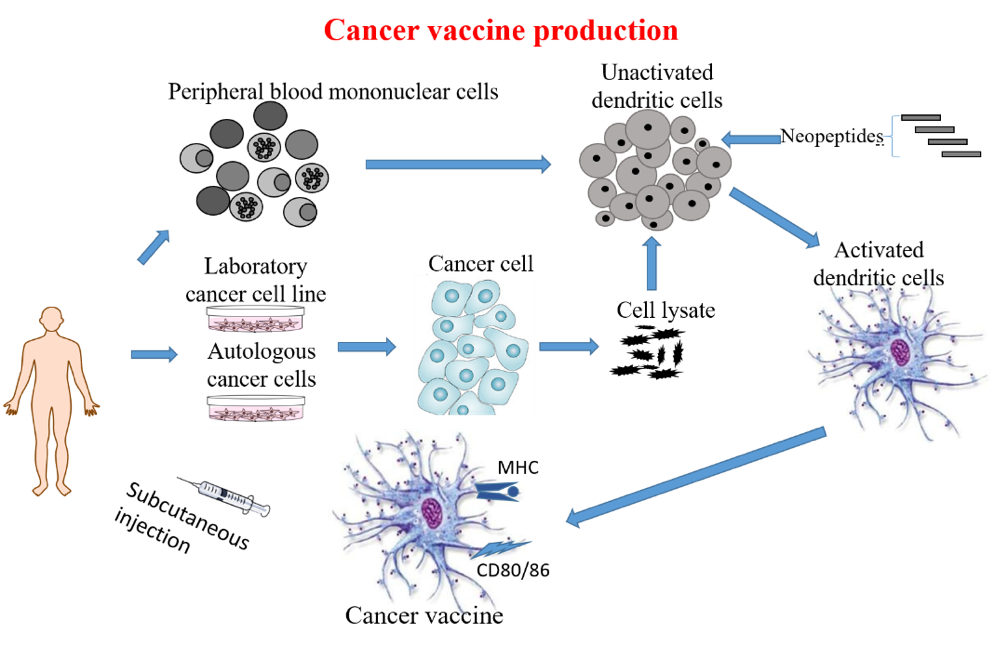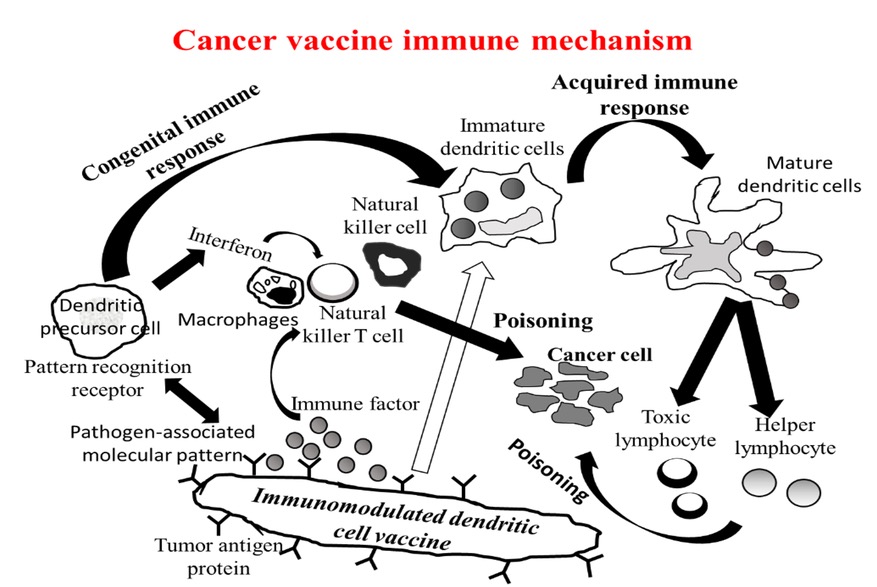Our Institute
Clinical Trials
Our Science
News
International Patients
- International Patients
- International patient Service Care
- Travel Arrangement and Hospital Admission
- FAQ
- Contact Us
Tumor antigens are protein fragments produced by genetically mutated cancer cells, and many are similar to normal proteins, making them unrecognizable by the immune system. Many tumor vaccines are based on a single tumor antigen, and some are based on multiple antigens using tumor lysates, or peptides. New antigens generated from tumor mutations based on whole exome sequencing(WES) , called neoantigens, have been pursued as promising new tumor vaccines. The immune modulation by dendritic-cell-based cancer vaccines consists of genetically modified dendritic cells to prime and activate T cells to target cancer cells. The latter is a more advanced cancer vaccine technology that is more tedious to engineer and practice.

The autoimmune response is activated to target cancer cells
Cancer cells arise everyday and are eliminated all the time by our immune system. When the immune function is compromised, or sometimes, severe cancer mutations occur by chance, the cancer cells may breakthrough the immune surveilance. Therefore, the activation and enhancement of the immune system to recignize cancer cells is important for treating cancer.
To improve and enhance the immune reactivity of cancer vaccines
Traditional vaccines are based on weakened or inactivated viruses or bacteria that may trigger an immune response in the body. Tumor vaccine development hass evolved from the early generation of whole tumor lysates to the current neopeptide tumor vaccines. GIMI has developed novel gene-modified tumor and DC vaccines to enhance the anti-cancer immune response.
Immunologically modified dendritic cells at GIMI
GIMI's cancer vaccine uses the latest technology to include immune gene modified tumors and DCs to present multiple tumor antigens, as well as to synthesize new tumor mutation peptides (neoepitopes) via NGS WES and computerr-aided HLA restricted epitope prediction technology. The immune gene modified dendritic cell vaccines enhance presentation of specific cancer antigens, which at the same time produce immune-stimulating factors, promoting the immune system to recognize cancer cells. Including natural killer cells and dendritic cells in the immune system, theyy trigger a strong anticancer response, and induce cytotoxic T lymphocytes to kill cancer cells.
GIMI cancer vaccine can induce memory T lymphocytes
Cancer vaccines can prevent cancer recurrence and metastasis. Surgery, chemotherapy or radiotherapy can remove most of the tumors, yet, there are still residual cancer cells, which may lead to recurrence and metastasis. GIMI immune modulation technologyy is based on gene modifiedd DC-based cancer vaccine that can induce memory-type T-lymphocytes, and attack cancer cells. In other words, it can prevent cancer recurrence or metastasis after the cancer vaccine is administered.
